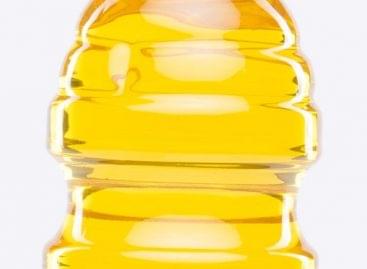Growing demand, changing climate, new technologies in the domestic vegetable oil industry
The bottled cooking oil and refined bulk oil market operates in an international system, so prices and trends are not determined by the independent production or consumption of each country – emphasizes Attila Miklós, Head of Sales and Logistics at Viterra Hungary Kft. Changes in global market demand not only shape prices, but also have a direct impact on domestic oilseed production, the development of production technologies and sustainability efforts – Agrárszektor writes.
 While a decreasing trend can be observed in household cooking oil consumption in the 27 member states of the European Union, in Hungary per capita consumption has increased by 20% in the past 15 years. According to the Central Statistical Office, this reached 13.3 kg by 2020, which was primarily driven by more health-conscious, plant-based diets and the rise of margarine and other vegetable fats. The trend is similar globally: according to Statista data, demand for vegetable oils is growing worldwide, driven by developing economies, industrial use (biofuels), and population growth.
While a decreasing trend can be observed in household cooking oil consumption in the 27 member states of the European Union, in Hungary per capita consumption has increased by 20% in the past 15 years. According to the Central Statistical Office, this reached 13.3 kg by 2020, which was primarily driven by more health-conscious, plant-based diets and the rise of margarine and other vegetable fats. The trend is similar globally: according to Statista data, demand for vegetable oils is growing worldwide, driven by developing economies, industrial use (biofuels), and population growth.
Climate change, market uncertainties, and crop protection difficulties are most affecting rapeseed production: the 330,000 hectares sown area in 2018 decreased to 130,000 hectares by 2024. In contrast, sunflower was produced on 675,000 hectares in 2024, which is above the five-year average. Soybean production increased in area, but yields were severely affected by drought periods in 2024, so a decrease is expected in 2025.
Spring and summer droughts seriously affect the yields of rapeseed, sunflower, and soybean. The quantity and quality of the crop deteriorates: smaller grains, lower content, unfavorable fatty acid composition. All this reduces processability and market value – points out Attila Miklós.
New analytical tools (e.g. infrared content measurement, inline sensors) enable fast and accurate quality control of crops, up to every 5 seconds. This not only increases efficiency, but also radically reduces intervention reaction time. Digitalization and automation can optimize production, reduce losses, and ensure product uniformity.
The energy demand of processing is high – but developments are also easing this. The shell of sunflower seeds can be utilized as biomass: the thermal energy produced from it offers solutions that are almost on an island plant level. In addition, the large roof surfaces of factories can be utilized excellently with solar panel systems, and wastewater plants can also be operated as biogas power plants.
Related news
Palm oil has lost its position as the cheapest cooking oil in the world
🎧 Hallgasd a cikket: Lejátszás Szünet Folytatás Leállítás Nyelv: Auto…
Read more >Related news
40 secure jobs, sustainable solutions – new BURGER KING® in Csepel
🎧 Hallgasd a cikket: Lejátszás Szünet Folytatás Leállítás Nyelv: Auto…
Read more >







